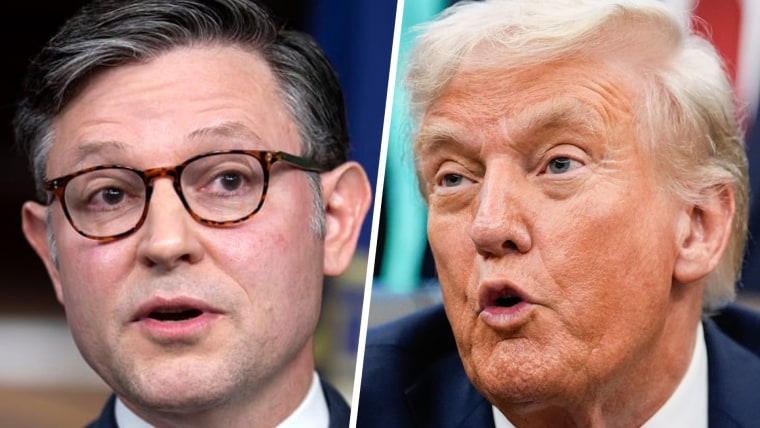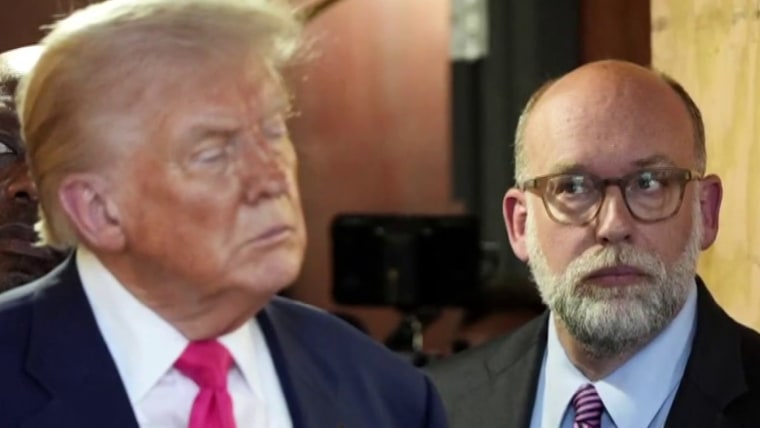After more than two weeks, there’s still no end in sight to the federal shutdown. In other shutdowns, the White House and lawmakers would be looking for a congressional off-ramp. What we’re seeing instead is President Donald Trump and his budget chief, Russell Vought, taking advantage of a supine Congress to further seize control of federal spending. The gambit is intended to minimize the political pain of the shutdown for Republicans — and is likely breaking the law in the process.
Federal shutdowns happen when the money that Congress appropriated to fund the government runs out at the end of a fiscal year. That’s the case even if there are still pockets of unspent money in various projects’ accounts across the government. “Congress can authorize transfers but has to have permitted it in law. It’s not a blanket permission that the agency has,” Philip Joyce, a professor of public policy at the University of Maryland and former Congressional Budget Office staffer, told me in a phone call Tuesday. “It’s generally prohibited between accounts unless you have prior authorization.”
The gambit is intended to minimize the political pain of the shutdown for Republicans — and is likely breaking the law in the process.
In spite of that general prohibition, the Office of Management and Budget under Vought is searching for (shall we say) creative ways to keep Trump’s priorities funded. Earlier this month, the White House announced that it would transfer revenue from Trump’s escalating tariffs to fund the Special Supplemental Nutrition Program for Women, Infants and Children, better known as WIC. While deeply cynical, given the usual GOP disdain for federal assistance programs, it helped inoculate the White House politically against claims that it didn’t care about mothers of newborns going hungry.
More concerning was the message Vought’s OMB posted this week on X,: “Pay the troops, pay law enforcement, continue the RIFs, and wait.” (RIFs are “reductions in force” — referring to the latest mass layoffs of government employees that the White House began last week.) During shutdowns, military service members typically get paid due to standalone bills passed by Congress, whose members are unwilling to risk being accused of not supporting the troops. But the Trump administration has decided not to wait for lawmakers to clear up this legal murk. NBC News reported last week that OMB “sent a notification to Congress about their intent to use research and development funds to pay members of the military.”
There are provisions baked into Pentagon funding bills that allow for the defense secretary to transfer money around if needed but with very specific guidelines. The most recent defense appropriations law allows for roughly $6 billion to be swapped between military accounts. It’s a big number but still less than the $8 billion that the White House said it would pull from the Defense R&D budget to cover a pay period’s worth of checks for the hundreds of thousands of active duty and reserve service members on the payroll.

Trump upped the ante Wednesday when he signed an order authorizing Defense Secretary Pete Hegseth to work with Vought to “use for the purpose of pay and allowances any funds appropriated by the Congress that remain available for expenditure in Fiscal Year 2026.” As Center for American Progress analyst Bobby Kogan rightly noted, the order likely violates a key budget law known as the Antideficiency Act.
Article 1, Section 9 of the Constitution states that “No Money shall be drawn from the Treasury, but in Consequence of Appropriations made by Law.” But from the early days of the republic, executive branch departments sought ways around this restriction, such as the military entering into unpaid contracts and daring lawmakers not to provide the funding. So in 1870, Congress passed a law prohibiting federal officials from spending or obligating money that Congress had not appropriated. The modern ADA is descended from that law. Unlike the Impoundment Control Act, another budget law the White House has been flouting, violations of the ADA carry criminal penalties. Not for the president, mind you, but for any federal employee who carries out the order to spend money that hasn’t been appropriated.
That said, parsing exactly what money the White House is shuffling around, and the exact limits on how those funds are to be used, can be a problem even for experts. For example: In most cases, there’s no way for presidents to treat tariff revenue like a slush fund. “President Trump will sort of talk as if he’s got this money that can be spent. It cannot be spent unless Congress authorizes and appropriates it to be spent for a particular purpose,” Timothy Meyer, a professor at Duke University School of Law, told NPR earlier this year. “It’s just a tax in the same way the president cannot just turn around and spend the income tax dollars that the IRS collects and remits into the general revenue of the Treasury.”
Parsing exactly what money the White House is shuffling around, and the exact limits on how those funds are to be used, can be a problem even for experts.
But Vought may have found a loophole that specifically applies to WIC funding. Hours after our initial phone call, Joyce, the public policy professor, sent an email flagging a provision tucked into a 1935 law, which says the secretary of agriculture can use “gross receipts from duties collected under the customs laws” to (among other things) encourage food consumption “through benefits, indemnities, donations or by other means, among persons in low income groups.” That might allow apply to WIC, which is under the Department of Agriculture. But the law was supposed to help America’s struggling farmers during the Great Depression, and it’s easy to imagine a judge in any lawsuit being skeptical given the gap between the law as intended and how it’s being used.
The problem is that for a court to rule on that novel application, or the military paycheck scheme, there would have to be a lawsuit to block the administration’s efforts. The White House is clearly betting that the bad optics of suing to keep money out of the paycheck of service members and food out of infants’ mouths will outweigh any principled urge to defend Congress’ power of the purse.
It’s not like the Republican-led Congress itself is leaping at the chance to protect its powers from an encroaching executive. “If the Democrats want to go to court and challenge troops being paid, bring it,” Speaker Mike Johnson, R-La., said at a news conference Tuesday. Senate Majority Leader John Thune, R-S.D., lined up a vote on a standalone military pay bill Thursday, but the maneuver was more about embarrassing Democrats politically than being embarrassed by Vought rendering him a fiscal figurehead. And while House Armed Services Committee chair Mike Rogers, R-Ala., told reporters Friday Trump's "creative solution" is "not going to be available in two weeks for their next paycheck," it doesn't seem likely that he'll stick his neck out to ensure there aren't more creative solutions coming down the line.
The White House seems intent on pushing the limits of the law even further. As flimsy as the justifications for the military pay and WIC funding are, there was no justification whatsoever given for the decision to pay roughly 1,800 FBI agents during the shutdown. “Got a lot of people paid actually,” Trump said in the Oval Office on Wednesday alongside FBI Director Kash Patel. “We got the people that we want paid, paid. And we want the FBI paid. We got want the military paid. We got the people that we want paid.”
There’s been no explanation at all so far as to where the money would come from to pay the FBI even as most other federal workers face illegal layoffs or continue to work without pay. And at this point it would be unsurprising if none was forthcoming. Absent Congress or the courts stepping in, as long as the money keeps flowing to his favored people, Trump will keep treating the Treasury like the White House’s ATM.

